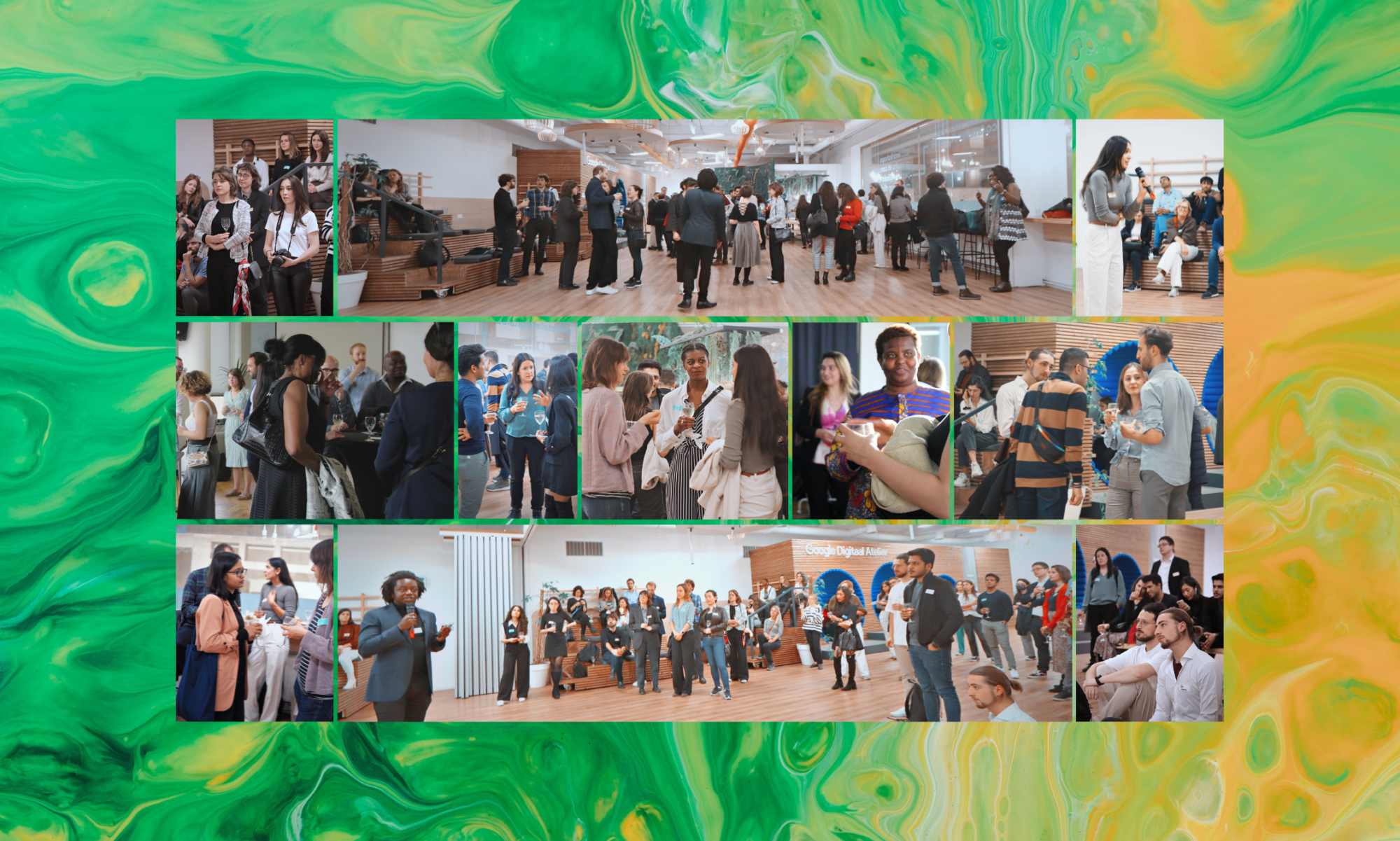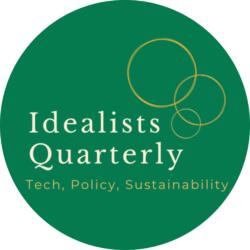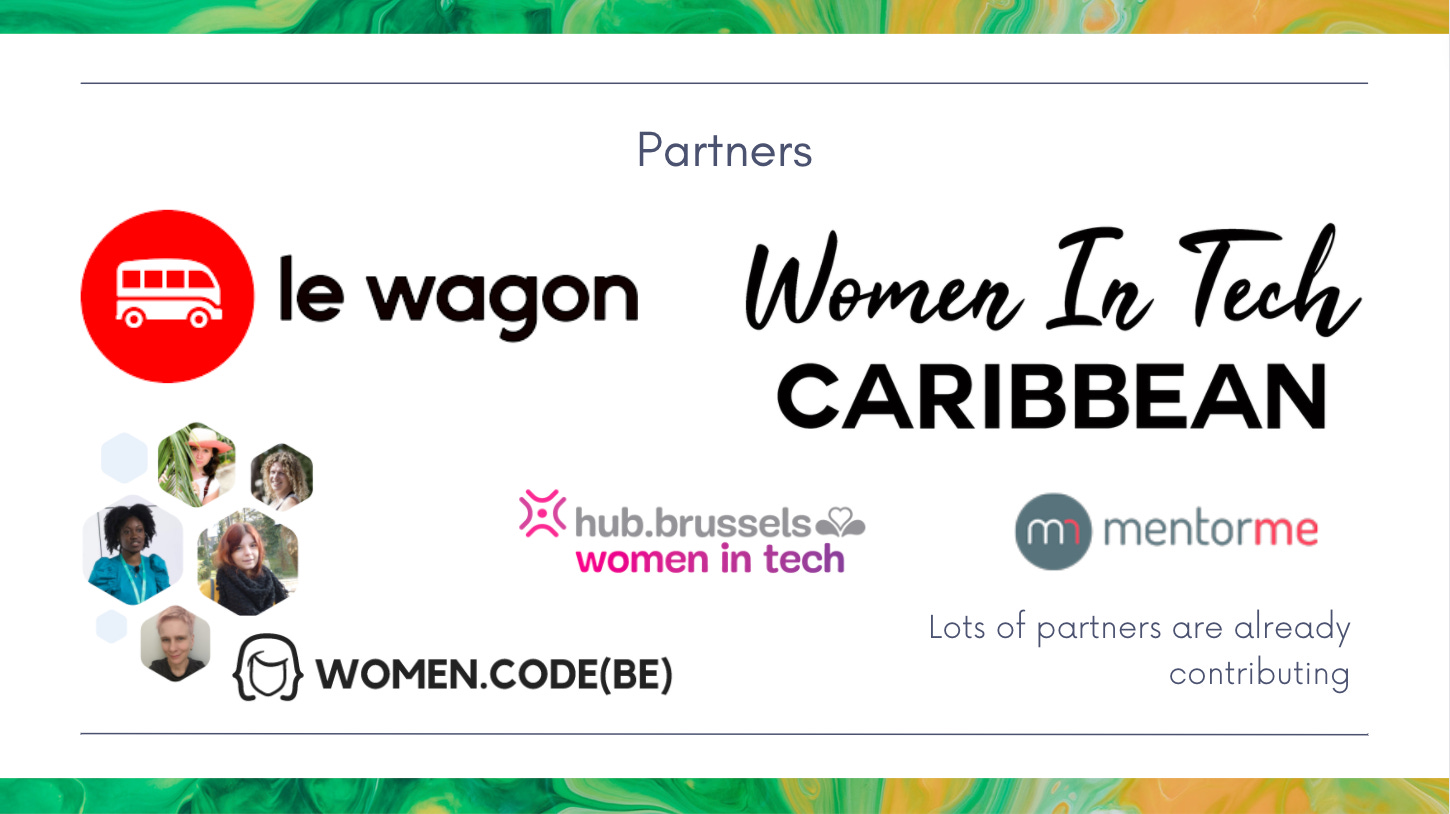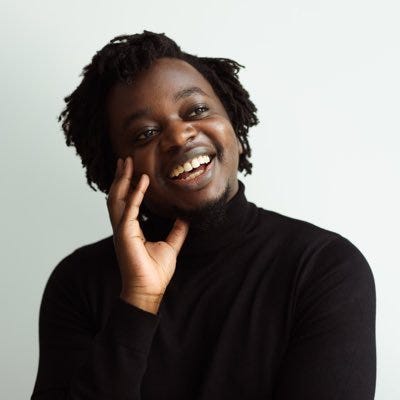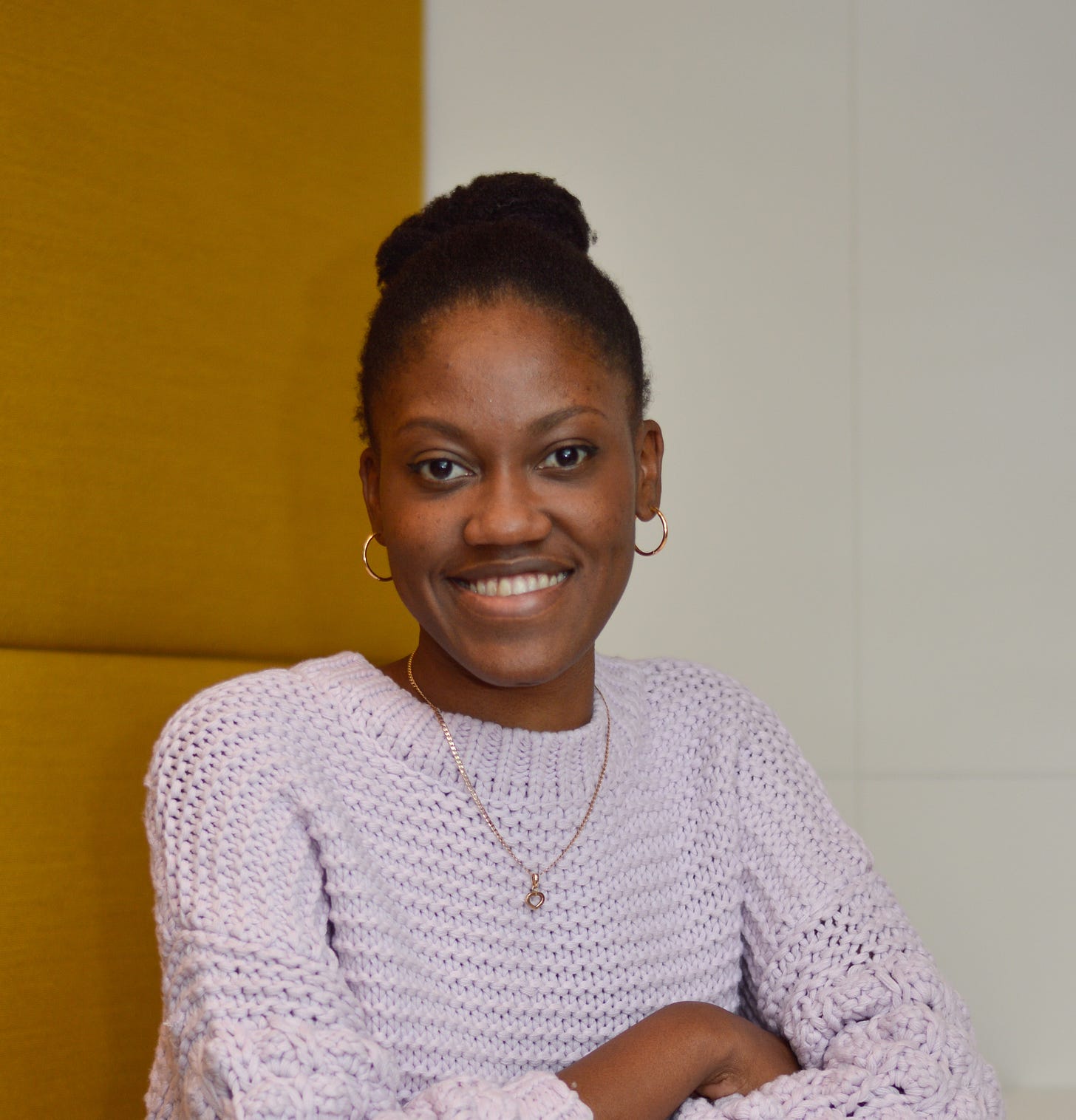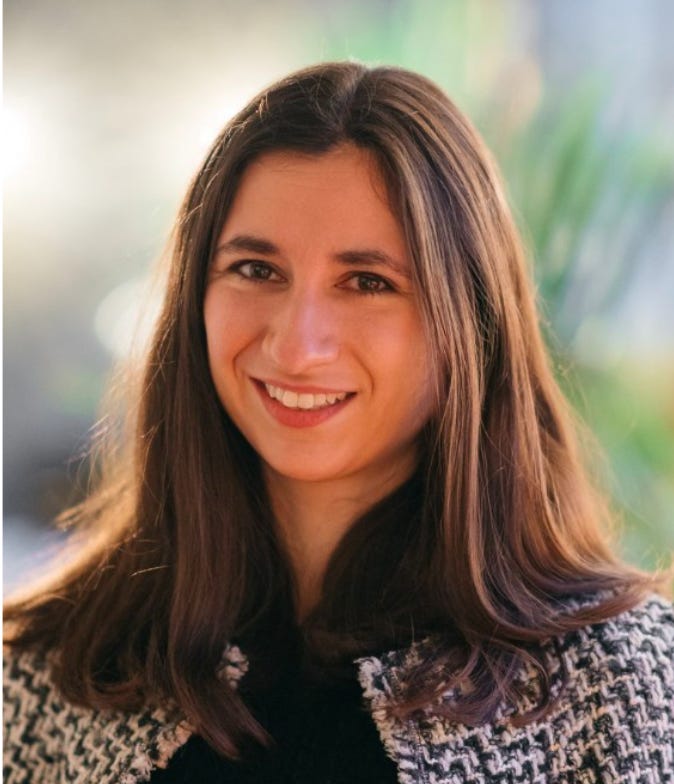Get ready to shake things up and meet some fabulous and like-minded people
I am delighted to invite you to the launch event for the Peer Mentorship Space with some really amazing partners on
Wednesday 18 May, from 6pm in Brussels in BeCentral, Brussels
…so we can make sure we don’t run out of bubbles (and non-alcoholic drinks). We can’t wait to see you there!
This event is for people who
- (Want to) work in policy, tech or sustainability.
- Are passionate about improving the communities around them, open to collaboration.
- While many of the community members identify as women, all genders are welcome.
Men are welcome if they want to support women, in particular black women and women of colour, members of the LGBTQI+ community, people with disabilities. - We particularly welcome people from diverse cultural, religious and socioeconomic backgrounds, and we aim to accommodate any special needs. Write to us with any questions.
What’s in today’s newsletter
- EDITORIAL: What is mentorship to me
- RESEARCH: The power of listening to oneself
- READS: Recommended books and articles
- MEDIA: Movies, shows and more
- NETWORK: People to watch (and support!)
- YOU: How you can get involved
1. One question… what is (good) mentorship for you?
I was asked to speak about mentorship recently – by the women.code(be) community, and the Global Shapers community in Brussels. This got me thinking.
One question I have always asked myself (and others) is: What would I advise my younger self, if I could meet her? What’s something I wish I had understood earlier?
When I think about the early days of my career, it brings up images of having to figure out how to get by on your own, and every now and then you meet a great person, a role model or someone you simply enjoy spending time with. For me, mentorship never involved some benevolent mentor helping me out (though sometimes I wished). Rather, it’s about peers who decide to break the silence around certain topics – verbalising and sharing their experiences and supporting each other with their learnings.
Mentorship is and should be a decentralised concept. Run by peers – not hierarchies nor binaries.
Understanding yourself and others
Personally, I’ve had great mentors and terrible mentors. And what each and everyone of them have taught me is
- How to spot good people, and how to best support ourselves and each other
- How to quicker identify the energy suckers and secret sabotagers around me.
And so, my friends and I became our own mentors. And each others’.
The way I see it, every person already has five excellent mentors, or let’s say: advisers or counsellors. They are: fear, anger, joy, disgust, sadness. Our emotions play a crucial role in our lives, and emotional literacy is powerful.
Base emotions, reflexes and instincts fulfil important functions. They help us identify when something needs to change or when we have to get the hell out of here. We may need to adjust our own thoughts or attitudes, or actively change something outside of ourselves, in our environment or relationships.
For the German speakers – in my podcast I discuss why emotional literacy is so crucial for having a successful career as well as for solving crises like fighting for climate justice, equity and so much more. I might do an English episode on this if you’re interested – just let me know.
2. Gut feeling Galore
Ok, buckle up for a quick story.
Did you know that your own gut-feeling is so much smarter than your conscious self? Psychologist Antonio Damasio did a study that illustrated this beautifully: Some people were put in front of four decks of cards on a computer. They were asked to choose which card to turn over. And, depending on which card they pulled, they would either lose money or gain money. So people started clicking on the decks and turning over cards. Unbeknownst to them, two of the decks were “good” decks. They contained many more rewards than punishments. And two of the decks were bad decks.
Here’s where it gets interesting
As the participants were playing this game, the researchers were monitoring their skin conductance, which is a measure of our nervous system arousal. As the game progressed and the players were turning over these cards, their skin conductance started to flare up whenever they considered taking a card from the bad deck, indicating that their bodies, their physiology was reacting to the presence of a threat. And yet consciously, the players, when asked, had no idea that two decks were good and two decks were bad. They had no clue about the pattern that was present in the game.
But they began slowly but surely to learn this pattern in an unconscious way and avoid those bad decks more and more as the game went on, showing that they were learning, in a sense, from their gut feeling. But again, this was all non-conscious. So those of us who are more in touch with our internal sensations, and those of us who trust themselves, are more successful and better at avoiding threats. And this is an ability that can be deliberately cultivated to make better use of that wisdom and experience stored within our body.
In short:
Trusting your gut feeling PAYS off, quite literally.
Listen to more here on my podcast.
Before I meet you at the launch event on 18 May, 6pm, (remember to RSVP here) I want to leave you with some reflections and recommendations.
3. Books to read (and recommend)
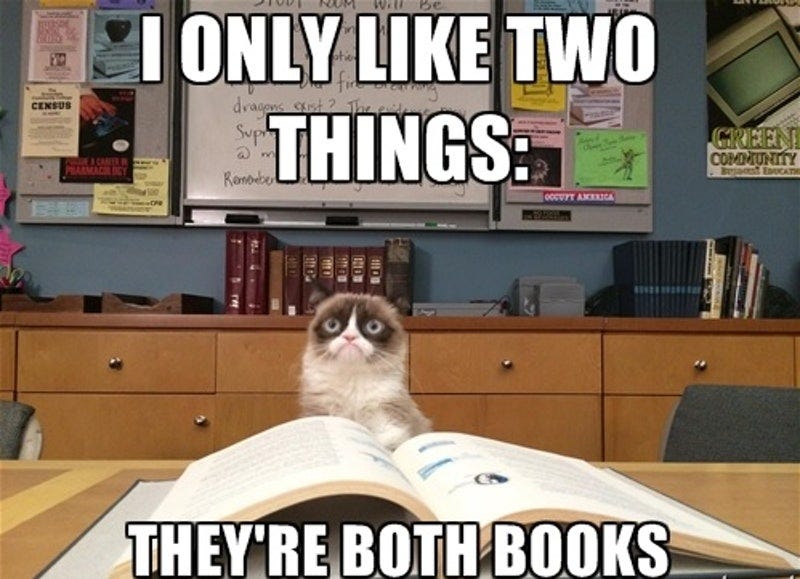
The Ministry for the Future. I would describe this as a dystopian futuristic science fiction novel, with a stubborn and radically optimistic spin. What happens to geopolitics, the global economy and human society once the climate crisis runs its course? How can one rebuild a sick planet in order to survive and thrive on it?
If you work in policy, recommend this novel to your colleagues. Let me know what they say!
And of course follow Sevim Aktas’ EU Energy Transition Brief and
Cass Hebron’s Green Fix – an ethical roundup for the climate-conscious in Europe and beyond.
If you want to learn more about what people are already doing to preserve and restore the planet, check out this year’s Regens Unite conference on 19/20 May in Brussels – a 2 day hackathon to explore how we can move from sustaining an unsustainable status quo to regenerating natural habitats, communities and more.
Empress Dowager Cixi – The Concubine Who Launched Modern China (my second favourite historical biography after Catherine the Great: Portrait of a Woman. This book describes the exceptional life and work of the woman who controlled the Manchu Qing Dynasty in China for half a century (1861 to her death in 1908). Coincidentally. It is a beautiful take on female perspectives on domestic and foreign policy, and inevitably ends up exposing the omnipresent patriarchal (toxic) masculine leadership styles, debacles and atrocities.
If you are into foreign policy, definitely read this. Let me know what you think in the comments of this doc.
Follow Kristina Lunz and the Centre for Feminist Foreign Policy
4. Movies/shows to watch
Station Eleven – Survivors of a devastating flu (ring a bell, anyone?) attempt to rebuild and reimagine the world anew. For me, this show brings up a lot of big questions: What happens after the end of the world? What does it mean for our capacity for empathy, when every single person on Earth has lived through the same trauma? What happens to people, when life and death depends on identifying whether another person is your ally or a potential enemy? What happens to communities, when people decide to hold on to the best of what’s been lost, and radically do away with the harmful old?
Queen of Katwe – This is the true story of Phiona Mutesi. At 14 years old, living in Katwe, Kampala, Uganda, Phiona’s life changes radically when she meets chess coach Robert Katende and is introduced to the game of chess. I’m not going to spoil anything – go watch it! Today Phiona supports many more children through sports outreach and education. You can check it out and donate here
5. People to watch (and support!)
So many amazing people are doing incredible work to restore the health of our planet, communities and people. The best part is: There are equally many easy ways to support them.
Tino Chibebe
📚 Tino Chibebe is hosting a launch event this Friday, 22 April, 7pm. And until then: his book “The Black Opportunity” on VC & Afropean entrepreneurship in Belgium is already available on Amazon. Show Tino’s work some support by appeasing the algorithms that be:
Give it 5 ⭐️ ratings, share it with your friends – and of course buy and read this important book.
Follow Tino Chibebe, buy his book “The Black Opportunity” and join his book launch event this Friday, 22 April
Janique-ka John
Janique-ka John is the founder of Women in Tech Caribbean – a network of 200+ members, promoting opportunities, job offers and scholarships. Janique-ka is an experienced software engineer, entrepreneur and an inaugural member of Twitter Developer Insiders.
Make sure to follow her on Twitter.
Chloé Bailly
Chloé Bailly is an experienced marketing expert, and manages Events and Community outreach at Le Wagon in Brussels – a coding school based out of 40 cities in 25 countries. Originally from France, she now works in the heart of Europe.
Follow her work at Le Wagon on Twitter.
Le Wagon offers 9-week bootcamps in Web Development and Data Science (on campus or remotely).
6. What about You?
If you’re reading this, chances are you are already thinking about what you want to bring to the world and the people around you, and what you want for yourself. There are so many organisations and networks in Brussels – or in any city.
Share your knowledge, interests or project with someone – and if you like, share it with me and find other community members.
If you want to explore new topics or give a talk on something you’re interested in – it’s easier than you might think! Here are some tips I learned once.
If you don’t know where to start, just email me, or message me on LinkedIn.
See you on Wednesday 18 May 6pm, at BeCentral Brussels! 🍸🌱
(remember to RSVP here)
